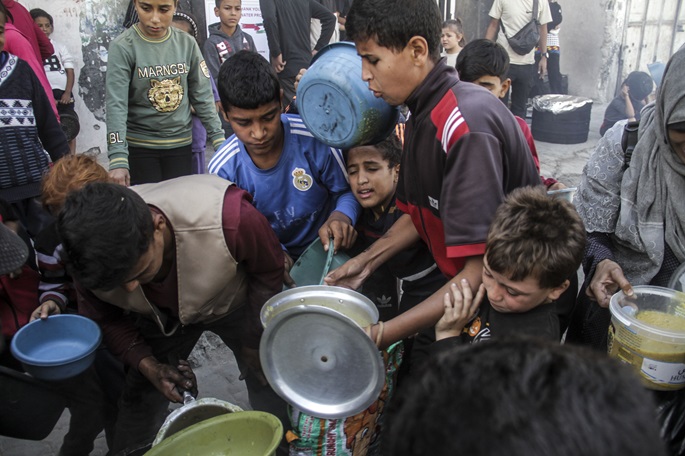FAO warns acute food insecurity to worsen in 22 countries
Published : 31 Oct 2024, 23:00
Acute food insecurity is expected to worsen in 22 countries due to multiple escalating factors, two United Nations (UN) agencies have warned in a report released on Thursday, reported Xinhua.
The "Hunger Hotspots - FAO-WFP early warnings on acute food insecurity" report assesses 16 hunger hotspots around the world, analyzing their outlook for the period November 2024-March 2025.
Sudan, Palestine, South Sudan, Haiti and Mali are the countries considered to be "at the highest concern level" and in need of "the most urgent attention," the Food And Agriculture Organization (FAO) and the World Food Programme (WFP) warned in a joint statement.
Chad, Lebanon, Myanmar, Mozambique, Nigeria, Syria, and Yemen are considered countries of "very high concern", while the remaining 10 countries and territories on the list are seen as hunger hotspots, including Kenya, Lesotho, Namibia, the Niger, Burkina Faso, Ethiopia, and Zimbabwe.
The alarming outlook is driven by at least three factors: conflict, climate, and economic instability and disparities. Alone or combined, these factors are threatening "to deepen already life-threatening conditions."
"Conflict and armed violence continue to be the primary drivers of hunger in numerous hotspots, disrupting food systems, displacing populations, and obstructing humanitarian access," the two agencies said.
The spread of violence is especially visible in the Middle East region, with the fallout of the Gaza war that has now engulfed Lebanon, pushing "millions of people to the brink."
Regarding the climate situation, FAO and WFP warned that the La Nina weather pattern could increase extreme events and threaten fragile food systems, exacerbating the food crises in already vulnerable regions until early next spring.
Economic crises and high levels of public debt in developing countries are also hindering the governments' capacity to protect their populations from poverty and climate shocks.
Referring to the five hunger hotspots considered of highest concern (Sudan, Palestine, South Sudan, Haiti and Mali), FAO Director-General QU Dongyu stressed the urgent need for "a humanitarian ceasefire, and to restore access to and availability of highly nutritious food."
Peace and stability were crucial for farmers to grow food, harvest, and sustain their livelihoods, he underlined, adding: "Access to nutritious food is not just a basic need, it is a fundamental human right."
The report highlights that early and targeted actions are crucial to prevent the crisis from further deteriorating. "It is time for world leaders to step up and work with us ... delivering diplomatic solutions to conflicts, using their influence to enable humanitarians to work safely, and mobilizing the resources and partnerships needed to halt global hunger in its tracks," said WFP Executive Director Cindy McCain.


